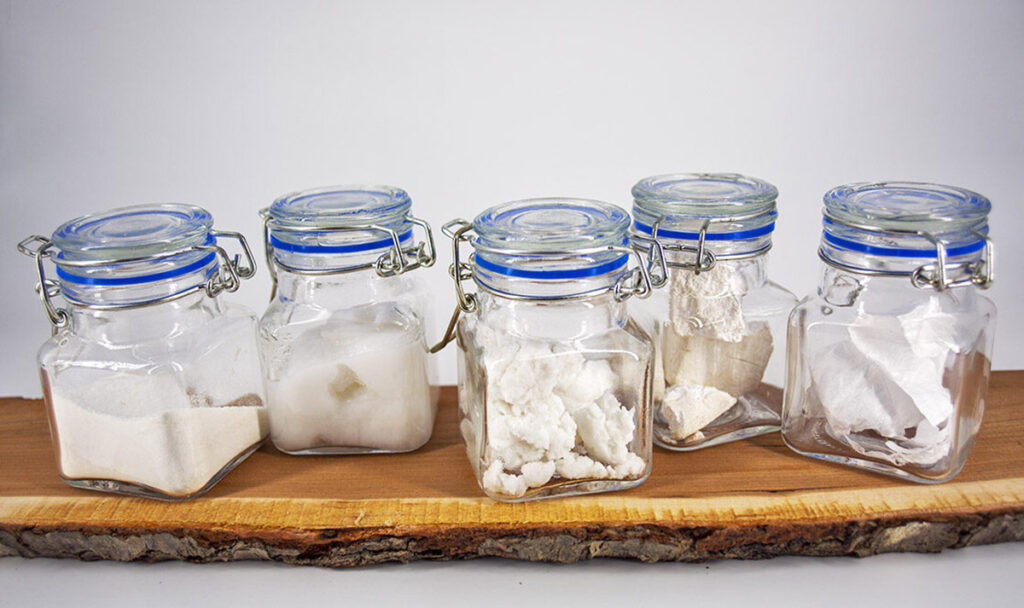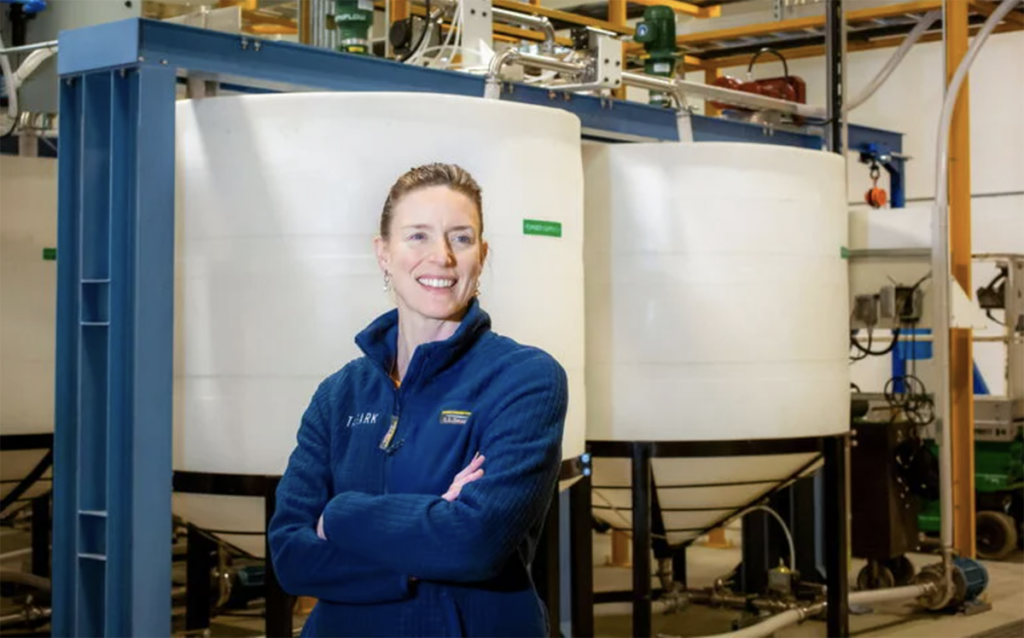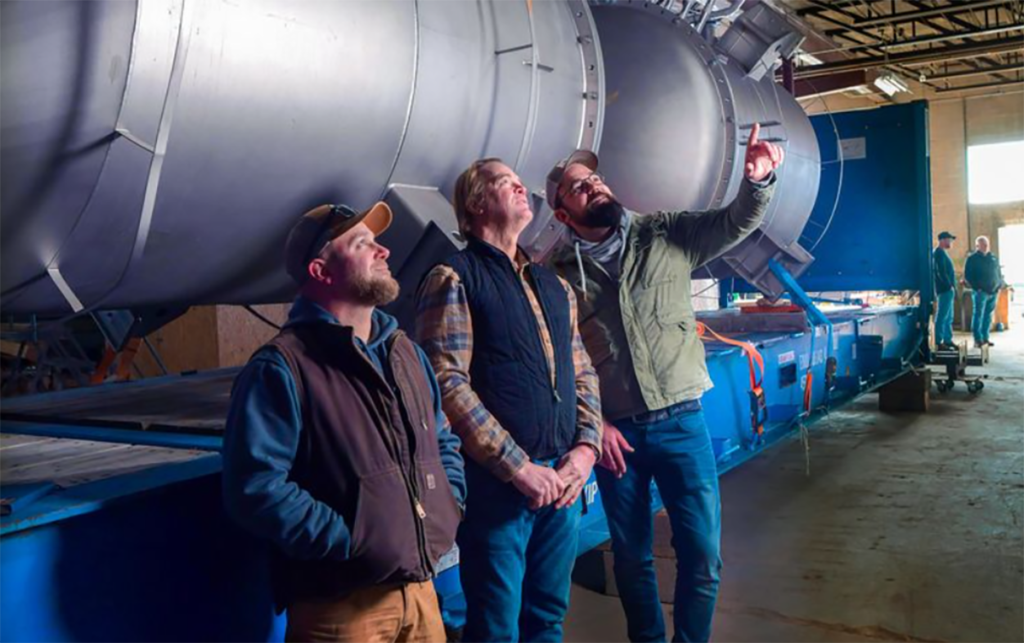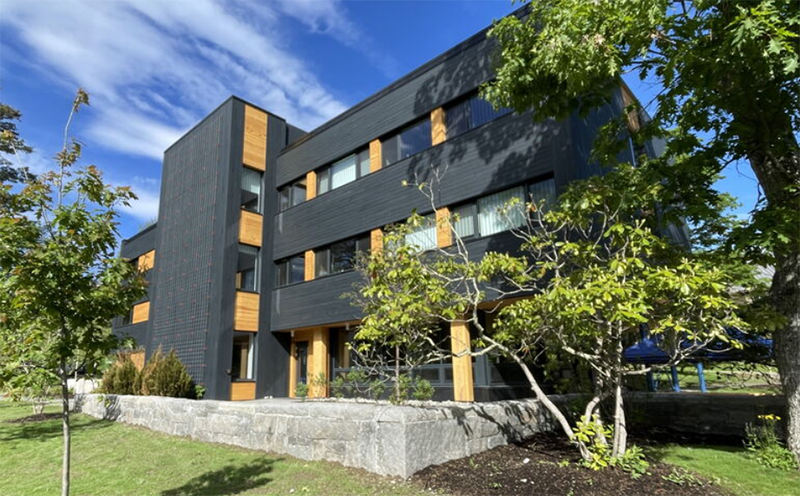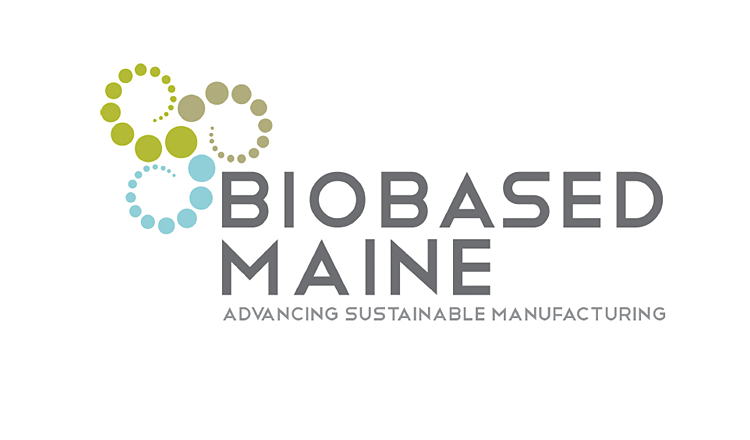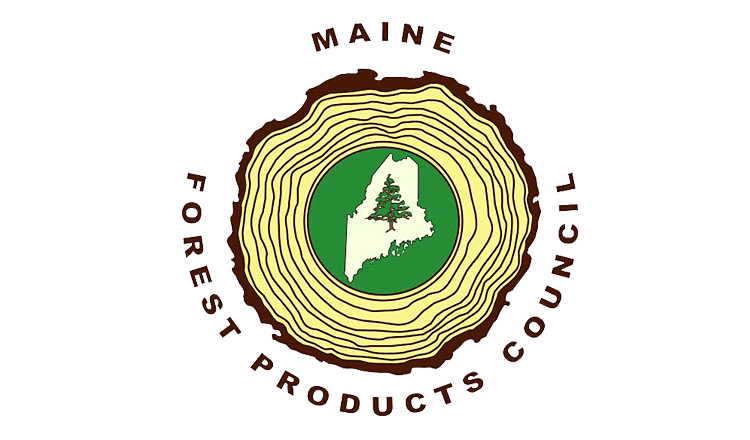Forest Products
Maine’s economic future, like the past, is inextricably linked to our sustainably managed forests.
The forest products industry in Maine is undergoing an exciting re-invention, bridging the old and the new. While pulp and paper manufacturing remain the top contributor to Maine’s forest economy, more mills are shifting production into tissue, label, and packaging grades of paper. Sawmill timber continues to be an important facet of Maine’s forest economy alongside emerging sectors and products including cross-laminated timber (CLT), wood fiber insulation, biofuels, mass timber, biochar, and biomass combined heat & power.
Maine has 89% forest coverage, the highest in the United States
$5.7 billion and over 13,000 jobs contributed to Maine's economy
Over $500 million in foreign exports of forest products annually

Maine research institutions and manufacturers are responsible for groundbreaking work in biofuels, biomaterials, and nanocellulose. Value creation is the key concept – turning sawdust into jet fuel or wood pulp to repair or replace human bones – using residuals to create innovative materials and products offers a future filled with new opportunities in this vital sector.
Forest-Based Economy, Jobs Focus of Maine Higher Ed Partnership
Maine’s forest economy and workforce are the focus of a $7 million grant from the National Science Foundation.
The money will go toward a four-year collaborative project, led by the University of Maine, to foster resilient forest communities in the state. The project will tap into and integrate a broad variety of fields and interests — including artificial intelligence and informatics, wood-derived alternatives to plastic, rural and Wabanaki resilience, and economically diverse rural development.
Maine Designated as a Federal Tech Hub for Forest Bioproducts
Maine’s Federally designated Forest Bioproducts Advanced Manufacturing Global Technology Hub embodies the rich legacy of talent, innovation, and infrastructure, poised to drive US leadership in the 21st-century clean technology economy. Through active collaboration among over 70 public and private sector entities, this initiative seeks to propel the development and commercialization of bioproduct technologies, fostering economic growth, job creation, and rural revitalization.
TimberHP Partnership Expands Product Sales into Canada
TimberHP, the Madison-based manufacturer of wood-fiber insulation, has inked a deal with a French company to expand distribution of the Maine startup’s products into Canada.
Saint-Gobain, through its building products subsidiary CertainTeed Inc., and TimberHP, a manufacturer of insulating wood composites, have entered into a collaborative relationship, which will enable CertainTeed to distribute TimberHP’s wood fiber insulation products in North America, including as the exclusive distribution partner in Canada.
“It is a huge vote of confidence in our technology and our team at TimberHP to partner with a brand as innovative and impactful as CertainTeed,” said Joshua Henry, Chief Executive Officer of TimberHP. “It is essential that we mold the future of construction to be exceptionally easy, effective, energy-efficient and sustainable, and we look forward to addressing those industry needs together.”
Sustainable Packaging Manufacturer Gears Up for Growth
Tanbark Molded Fiber Products is a rapidly growing designer and maker of high-end sustainable packaging made from Maine pulp and paper. The company aims to offer a compostable alternative to single-use plastic starting with clients in the food and beverage industry. Clients include Luke’s Lobster and grocery retailer Hannaford.
New Act for Maine Forest Products
Forest products have driven Maine’s economy for centuries. Mills continue to be a backbone for Maine’s rural economy, but markets for wood products are changing with a decline in the pulpwood and paper industry. New markets could include biochar, mass timber, packaging and biobased manufacturing.
College of the Atlantic Opens Second Mass-Timber Building
Three years after constructing a 30,000-square-foot building from mass timber, College of the Atlantic in Bar Harbor has opened its second such structure, a 12,000-square-foot residence hall. The structure uses blown-in wood fiber insulation produced by TimberHP at the former paper mill in Madison.
Focused on the Future of Maine’s Forest Products Industry
Forest Opportunity Roadmap/Maine (FOR/Maine) is a unique cross-sector collaboration between industry, communities, government, education, and non-profits to maintain our leading role in the global forest economy and support prosperity in our state.
Welcome to Nanocellulose Valley
Nanocellulose, nature’s super polymer, is helping to build the forest products of the future. This renewable natural material offers virtually limitless potential in a wide range of applications from food packaging to biomedical devices.
Industry Support
Trade association working to expand biobased product manufacturing in Maine through applied research, technical assistance, and information sharing that supports new product development, process engineering, and market assessment
Cross-sector collaboration between industry, communities, government, education, and nonprofits, which have come together to ensure that Maine strategically adapts and capitalizes on changing markets to maintain our leading role in the global forest economy and support prosperity in our state
Provide a supportive economic and public policy climate for the forest products community and promote a healthier, more vital forestry sector
Offers grants, loans, equity investments, and services to support Maine’s innovation economy
Unique, open-access research experience where scientists, entrepreneurs, and industry leaders work collaboratively to develop new pulp- and paper-based products and manufacturing processes
International Investors
We’d love to hear from you to discuss your interest in this sector and Maine’s advantages.

